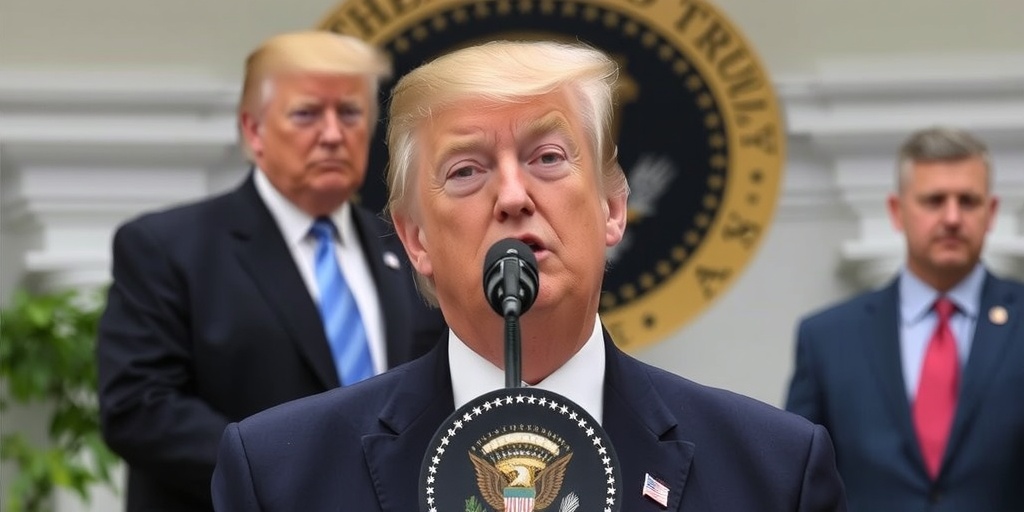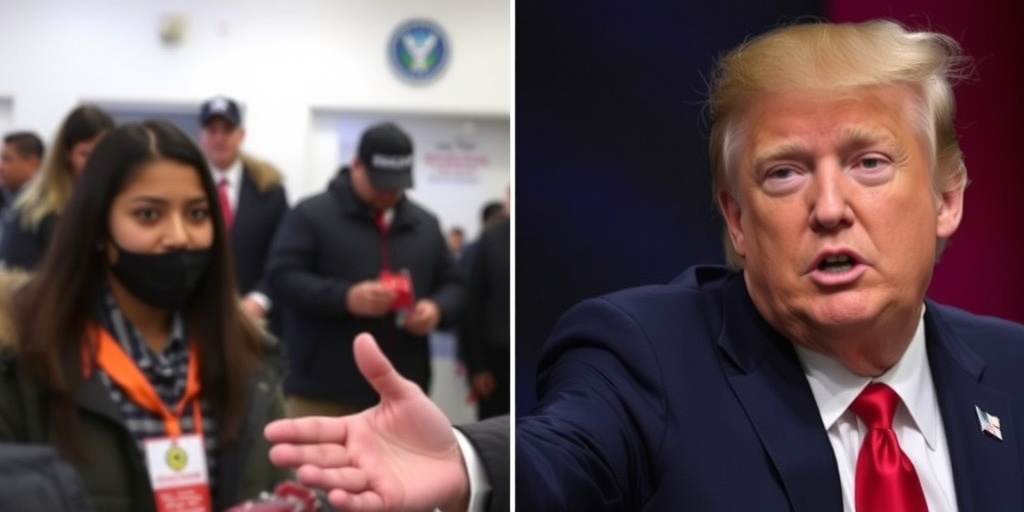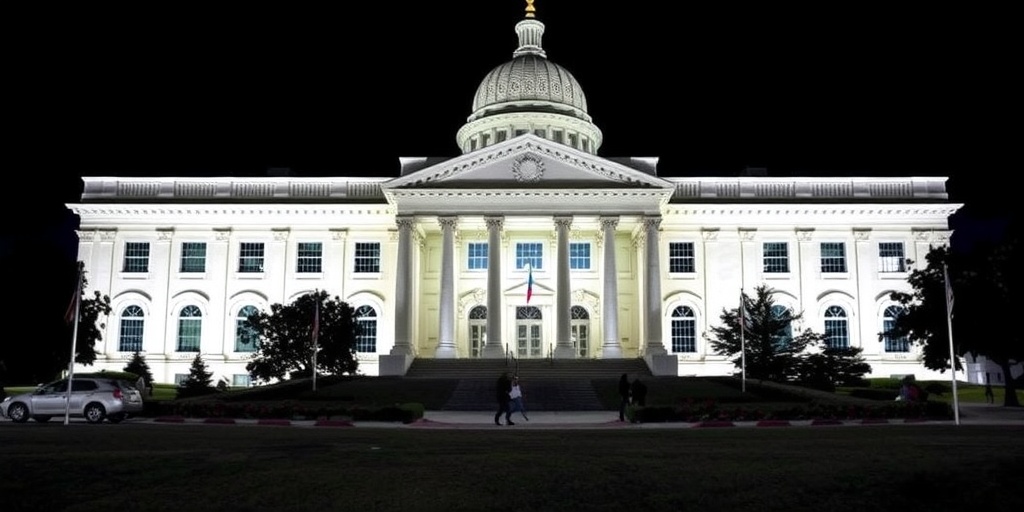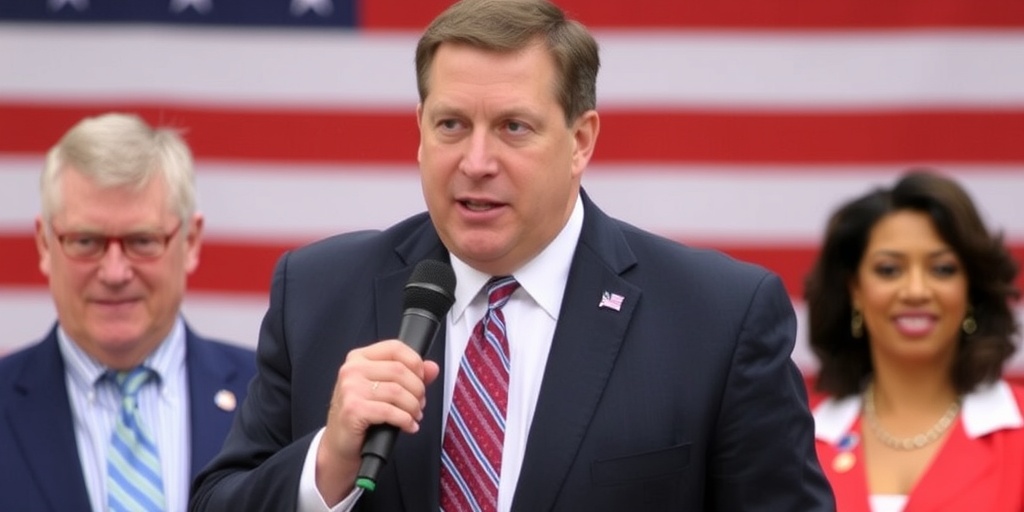Now Reading: Trump Officials Emphasize Tariff Outreach to Stabilize Markets
-
01
Trump Officials Emphasize Tariff Outreach to Stabilize Markets
Trump Officials Emphasize Tariff Outreach to Stabilize Markets
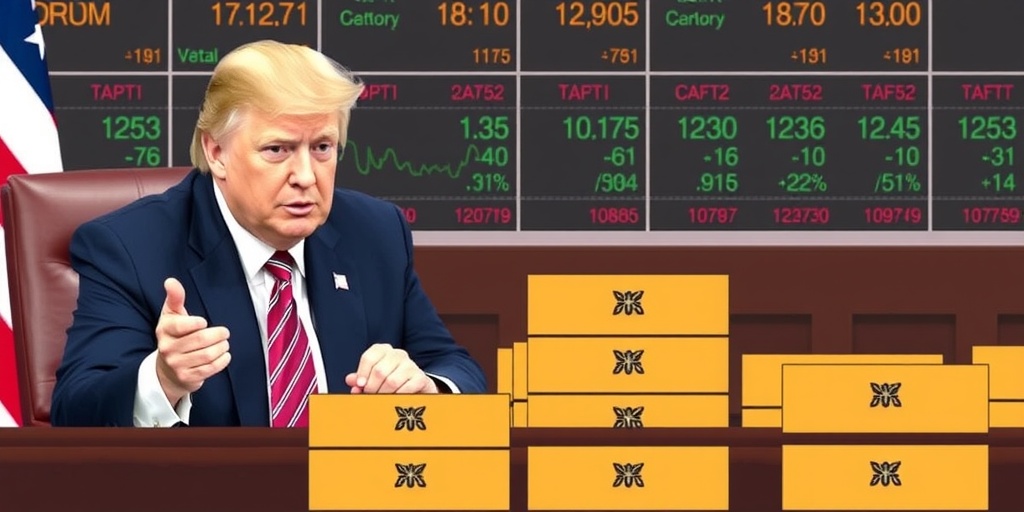
Title: Trade Tensions Escalate as Trump Administration Defends Aggressive Tariff Approach
Date: [Insert Date]
In a bold defense of the Trump administration’s recent trade policies, Jamieson Greer, the United States trade representative, asserted that the U.S. economy is entering a crucial phase that demands significant transformation. Testifying before a Senate committee, Greer emphasized that the nation has long relied on the financial sector and government spending, suggesting that the time for change is not only urgent but also long overdue.
Greer’s comments come at a time when the administration faces mounting criticism from various trading partners, businesses, and investors due to Trump’s aggressive tariff strategies. Recently, the administration announced a 10 percent global tariff alongside significant reciprocal tariffs targeting several countries, actions that have already sparked a trade war, particularly with China. Economists are increasingly concerned that these developments could push the U.S. economy toward a recession.
Despite these alarming trends, President Trump has remained defiant, downplaying concerns regarding the potential economic fallout from his trade policies. He insists that his agenda is essential for revitalizing American manufacturing and industrial output. Trump and his economic advisors maintain that there is considerable interest from foreign nations in forging new trade agreements with the United States, aimed at reducing tariffs and trade barriers.
On social media, the President shared details of a recent conversation with South Korea’s Acting President, Han Duck-soo, discussing trade and tariffs. Trump expressed optimism that efforts to avert a trade conflict with China could yield positive results, stating, "China also wants to make a deal, badly, but they don’t know how to get it started. We are waiting for their call. It will happen!"
In his prepared remarks, Greer reported that nearly 50 countries have reached out to his office seeking ways to achieve reciprocal trade agreements. He noted that the U.S. trade deficit, which has been an issue for over three decades, will not be resolved quickly but insisted that the direction of trade policy is moving positively.
Democratic lawmakers have seized on the growing economic turmoil linked to the tariffs as a sign that the Trump administration is mismanaging the economy. Senator Ron Wyden from Oregon, the top Democrat on the Senate Finance Committee, criticized the administration’s approach, stating, "The U.S. economy has gone from the envy of the world to a laughingstock, in less time than it took to finish March Madness. Through it all, Donald Trump and his advisers have yet to provide any understandable explanation at all for what his tax hike on the American people is supposed to accomplish."
Republican lawmakers, however, find themselves in a precarious position. Many are trying to balance their support for Trump with growing concern from their constituents about the impact of tariffs. Senator Mike Crapo, the Republican chairman of the finance committee, highlighted the need for a strategic approach to tariff policy that minimizes unnecessary burdens on American families. He acknowledged the visible costs of tariffs while also recognizing the challenges in assessing the long-term costs of lost market access.
On Wall Street, U.S. stocks experienced a rebound after days of losses, although trading remained volatile as investors navigate the uncertainties surrounding supply chain disruptions, inflation, and the potential for a global recession prompted by the administration’s tariffs. Treasury Secretary Scott Bessent sought to reassure markets on Tuesday, stating that over 70 countries had shown interest in negotiating tariff reductions. He expressed optimism that significant countries with large trade deficits would engage in negotiations to achieve favorable trade agreements.
Nonetheless, Bessent did not hold back in his criticism of China’s retaliatory tariffs, arguing that the U.S. holds more leverage in the ongoing trade dispute with the world’s second-largest economy. "What do we lose by the Chinese raising tariffs on us? We export one-fifth to them of what they export to us, so that is a losing hand for them," he explained.
Reflecting on the first term of the Trump administration during the trade conflict with China, it was noted that the U.S. incurred approximately $23 billion in costs due to retaliatory tariffs imposed by China on American goods such as soybeans, corn, and wheat, beginning in 2018. As the situation develops, the impact of these tariffs on both the U.S. economy and international trade relations will continue to be closely monitored by lawmakers and economists alike.
Stay Informed With the Latest & Most Important News
Previous Post
Next Post
-
 01New technology breakthrough has everyone talking right now
01New technology breakthrough has everyone talking right now -
 02Unbelievable life hack everyone needs to try today
02Unbelievable life hack everyone needs to try today -
 03Fascinating discovery found buried deep beneath the ocean
03Fascinating discovery found buried deep beneath the ocean -
 04Man invents genius device that solves everyday problems
04Man invents genius device that solves everyday problems -
 05Shocking discovery that changes what we know forever
05Shocking discovery that changes what we know forever -
 06Internet goes wild over celebrity’s unexpected fashion choice
06Internet goes wild over celebrity’s unexpected fashion choice -
 07Rare animal sighting stuns scientists and wildlife lovers
07Rare animal sighting stuns scientists and wildlife lovers













